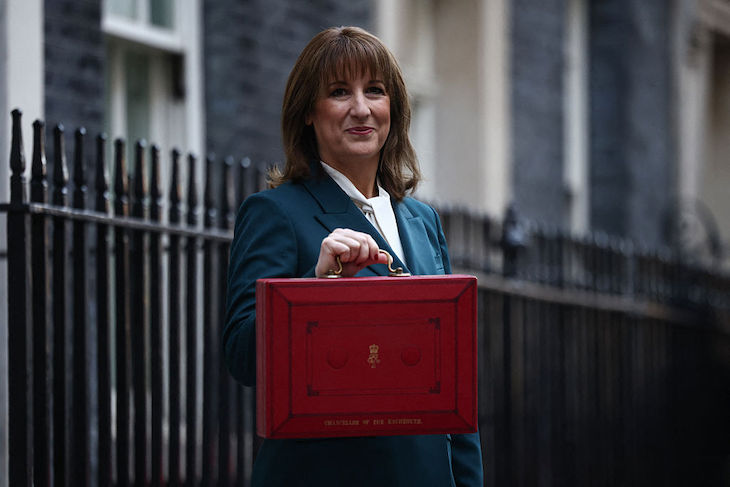The survey says
Sir: David Butterfield’s 21 years of experience of higher education (‘Decline and fall’, 26 October) chimes with my 35. But the decline in the rigour of university education which he so deftly describes has not been entirely self-willed. Successive governments have championed a consumerist understanding of higher education. Students have become consumers and academics have become service providers.
The reduction in the intellectual demands of undergraduate courses and grade inflation are due to the annual National Student Survey. Universities are in thrall to this and make ever greater efforts ‘to enhance the student experience’. This includes pandering to the desire of most students to have fewer essays, slimmer reading lists, few exams and higher grades. The fact that so many academics prefer not to teach is due to the Research Assessment Exercise, which hugely incentivises research over teaching. The obsession with applicants’ school backgrounds and the discrimination against those from private schools are due to the ‘access and participation plans’ foisted on universities by the Office for Students. I strongly doubt whether this experiment in consumerisation and social engineering will produce a fairer society, but it is certainly not producing better university education.
Dr Peter Wilson
Associate professor in International Relations, LSE
Classics example
Sir: There is much to agree with in David Butterfield’s ‘J’accuse’. As the mother of three current or former Oxford or Cambridge students, I have some accusations of my own.
Classics at Oxford has been thoroughly dumbed down. Instead of reading complete texts in the original language, there is an option to read extracts only, in an English translation. This changes the degree from Classics to Classical Studies, and means that a degree that was reputed for its rigour if not its relevance can now boast of neither.
Meanwhile, the music course at Oxford has been ‘decolonised’, and students study more hip-hop than Handel, literally. One article on the reading list includes this: ‘Like excrement, like the turd, which is, as is also well known, a metaphor of the penis, the work should stand upright.’ As part of one Prelims paper, my daughter tie-dyed a T-shirt. (She got a distinction.)
My husband and I met as students at Oxford in the 1990s and were initially delighted that our children followed us there. I could weep for how much things have changed.
Elizabeth Howard
London W5
NHS prescription
Sir: Your leading article ‘Hospital pass’ (26 October) rightly highlighted the possibility that Wes Streeting’s reforming zeal may already be waning. Rather than putting more money into the NHS, there are two things that he could do immediately.
Firstly, he could allow medical insurance premiums to be tax deductible, as they were in the 1980s. This would add impetus to the already growing private sector and would reduce waiting times.
Secondly, he could graft an equity release scheme into the NHS so that social care could be paid for out of the equity in people’s homes. This would need upfront funding – rather like university tuition fees – but would cut waiting times by freeing up hospital beds. It would also solve a long-running funding issue.
Martin Jourdan
Goodworth Clatford, Hampshire
Religious values
Sir: I write in response to the article about the Church of Scotland selling properties (‘Beyond belief’, 26 October) to express disappointment that your writer did not give us the opportunity to reply. This was unfair because we can assure The Spectator and its readers that the Church is not selling anything off on the cheap. Properties are usually sold at or around valuation, independently assessed, or in many cases substantially above valuation.
The General Trustees of the Church of Scotland have fiduciary duties as charity trustees to ensure that best value is obtained when transferring ownership of a building and usually a below market transfer is not something which can be considered. Community groups who claim to feel strongly are welcome to bid for any building that is put up for sale on the open market. But they must at least be able to pay the figure set by the independent valuer.
The Church owns thousands of properties, far more than required to achieve our mission of sharing the good news of Jesus Christ and serving our local communities. Changing population patterns along with falling membership, fewer people training for ministry and a reduction in financial contributions mean that it is necessary to reduce the number of buildings we own. Having fewer buildings will reduce pressure on congregational finances, freeing up funds and general income for other Church missional activities and a more sustainable situation.
The Revd Scott Rennie, Vice-Convener of the General Trustees of the Church of Scotland
Kenya’s emergency
Sir: I was too young during the Mau Mau rebellion to now challenge Aidan Hartley’s sweeping statement that the British government handled it ‘disgracefully’ (Wild Life, 26 October). All I can say with certainty is that communication was the key. My father, who was provincial commissioner of Nyanza (a servant of that government), tirelessly travelled around the province to offer his support and to listen to the worries of his ‘parishioners’, as he called them. He told them his office door was always open and they could ring him at any time, day or night. The Mau Mau did not spread to Nyanza and there would have been many others who would have done the same in their areas.
Veronica Bellers
Thornhill, Stirling
Write to us letters@spectator.co.uk







Comments